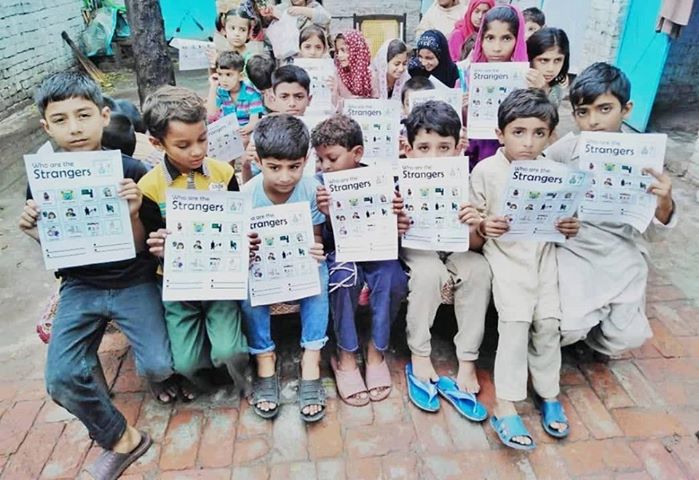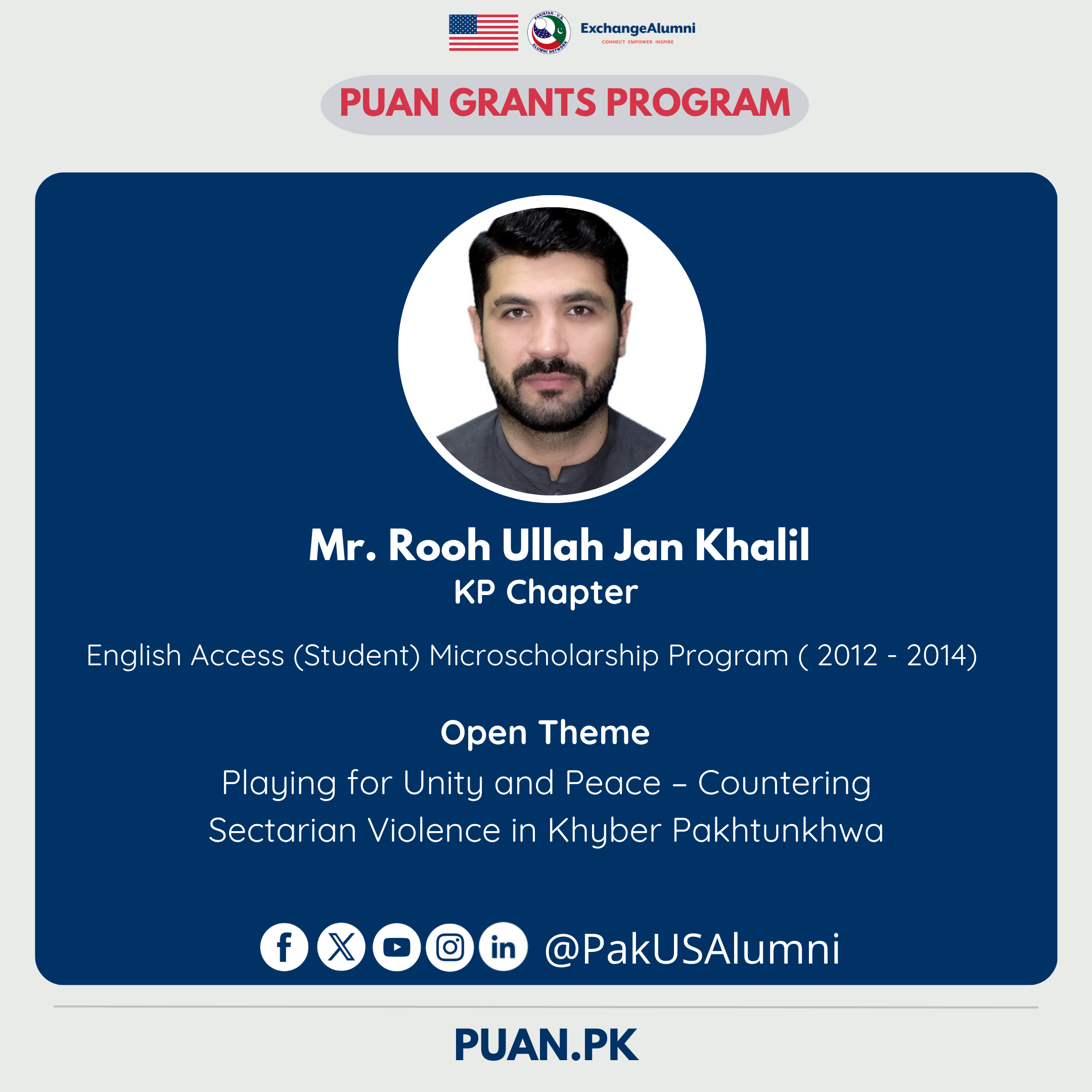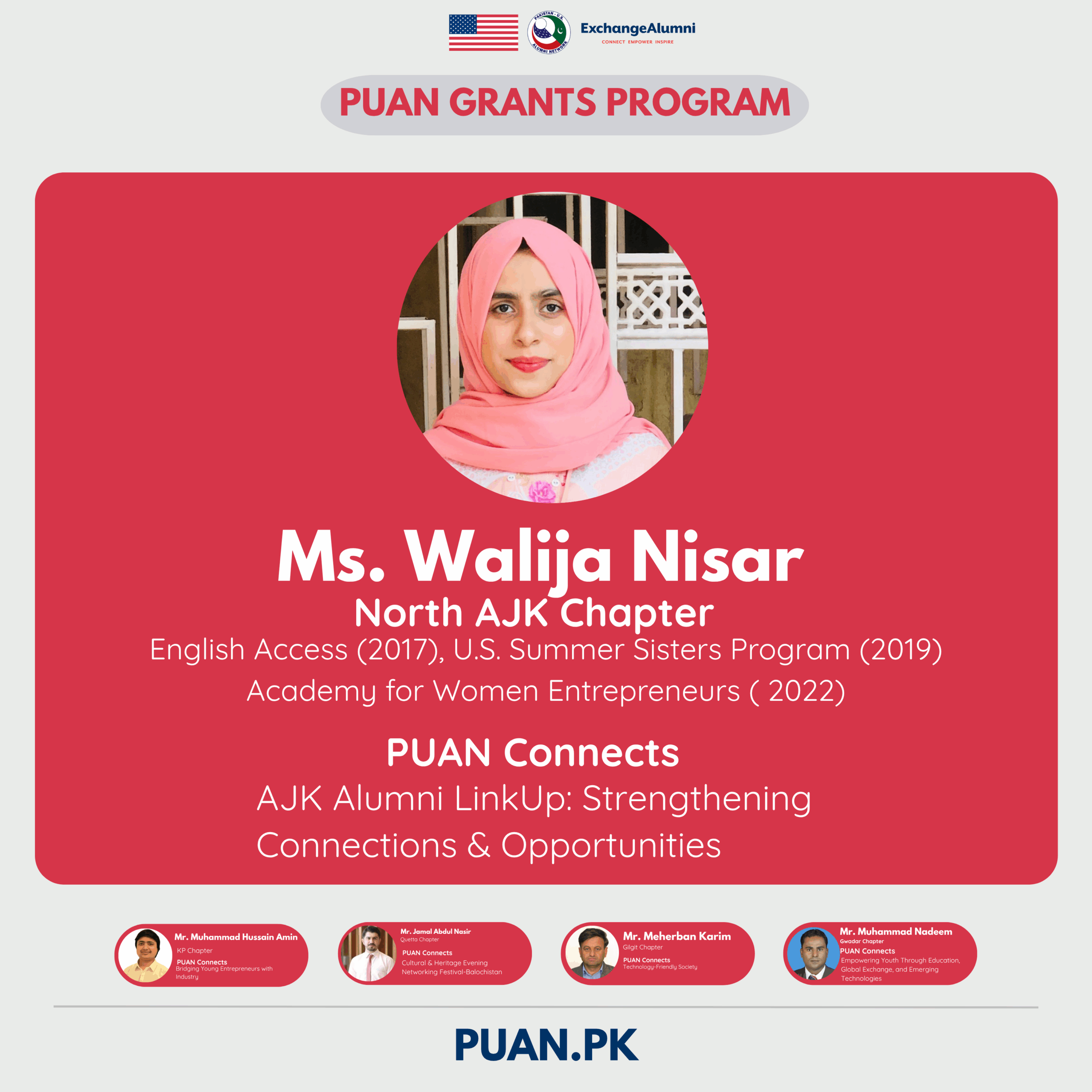Pakistan has recently witnessed a rise in child sexual abuse cases. According to a report that investigated the number of incidents of sexual violence against children in Pakistan, an estimated 3,832 child sexual abuse cases were reported in 2018, not taking into account the many cases that have gone unreported due to the shame and stigma attached with child abuse.
Zainab Nawaz, Pakistan-U.S. Alumni Network (PUAN) and Global UGRAD alumna, contributed to the cause by conducting a Community Development Initiative (CDI) small grant project on “Awareness Campaign against Child Sexual Abuse”. Multiple one-day workshops were conducted in different underdeveloped rural areas of District Gujrat. The session included parents, teachers, civil society advocates and child rights activists, with the aim to educate participants about strategies to avoid and condemn sexual abuse. Together, they educated children about the concept of Stranger-Danger, Body Safety Rules and interactive lessons such as Our Safe Circle, to ensure child safety and legal aid for victims.

Majority of the children had the wrong concept about strangers, where they had no sense of recognition as they didn’t consider their teachers, relatives, friends and other kids as strangers. Recent cases have, however, shown how children’s relatives have indulged in these wrongful acts, therefore the objective was to develop the concept of avoiding unnecessary contact with unknown individuals, by teaching the children four key rules that apply to all members except their safe circle i.e. parents and siblings. These rules include:
- Never talk to strangers.
- Never walk on the roads alone.
- Always wait for your parents.
- Always shout for the help when they try to touch you.
Furthermore, other safety measures were also taught, including the concept of ABC – Always Be Careful. Body safety techniques provided guidance to children on where and when to say no. These rules include:
- If they don’t feel comfortable while talking or meeting someone, they should say no.
- If something is bothering them, they should share it with a member of their safe circle only.
- They shouldn’t keep the secrets from their safe circle network, even if they feel bad about an encounter or scared.
- Your body is your body, and everyone should respect that privacy.

The aim was to help children identify and escape from potential harm, which can be committed even in broad daylight and public areas. Parents and guardians were also prepared to be more vigilant and attentive towards their child’s changing attitude and behaviour, where they were mentored on how to break the ice in such situations so that their children feel comfortable about sharing such incidents rather than staying quiet and perpetuating the risk.





